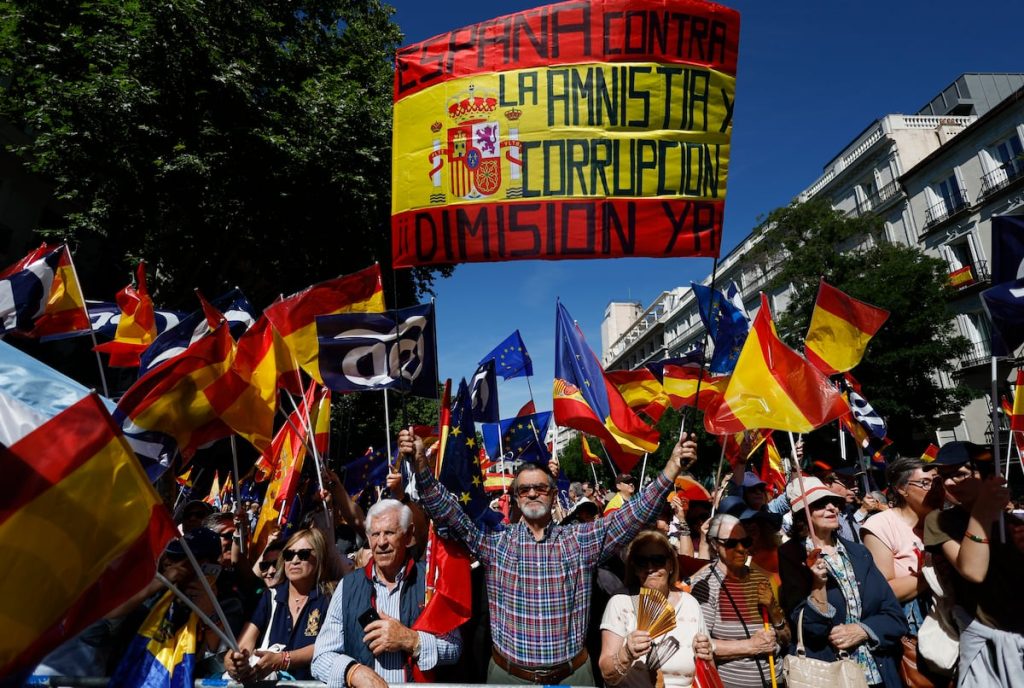On Sunday, the People’s Party (PP) has called for a demonstration in Madrid against the amnesty and against the government of Pedro Sánchez. The President of the PP, Alberto Núñez Feijóo, will lead the protest, which is scheduled just four days before the Congress approves the law definitively, lifting the Senate’s veto. The PP hope to show their strength in the fifth protest on the streets since the elections of June 23rd. Under the slogan “Your vote is the answer”, they hope to gather thousands of people at the Puerta de Alcalá starting at noon to “defend democracy, judicial independence, and freedom of the press”, as announced by the party leader. Former presidents Jose Maria Aznar and Mariano Rajoy will accompany Feijóo, along with several regional leaders.
Meanwhile, in other political news, the Spanish Prime Minister Pedro Sánchez has announced that the government will take legal action against the PP for their anti-amnesty protest in Madrid. Sánchez stated that the demonstration goes against the constitution and is an attempt to intimidate the judiciary. The government believes that the PP is trying to influence the decisions of the courts and is using the protest as a way to pressure the judiciary to act in their favor. Sánchez has called on all political parties to respect the separation of powers and not interfere in the independence of the judiciary.
The protest has generated mixed reactions among the Spanish population. While some support the PP’s stance against the amnesty, others believe that the demonstration is an attack on the government and an attempt to undermine democracy. Many are concerned about the increasing polarization in Spanish politics and the possibility of escalating tensions between the ruling party and the opposition. The protest has also raised questions about the role of the judiciary in the current political climate and the impact of political demonstrations on the justice system.
In response to the government’s legal action, the PP has defended the protest as a legitimate expression of democratic rights and freedom of speech. The party argues that they have the right to peacefully demonstrate and express their opposition to the government’s policies. The PP accuses the government of trying to silence dissent and suppress criticism by threatening legal action. The party has called on its supporters to join the protest and show their support for democracy and the rule of law.
Overall, the political situation in Spain remains tense as the PP’s anti-amnesty protest and the government’s response continue to fuel conflict between the ruling party and the opposition. The protest highlights the deep divisions within Spanish society and the challenges facing the country’s democracy. As the situation unfolds, it will be crucial for political leaders to find ways to bridge the gap and ensure that democratic principles are upheld. It remains to be seen how the protest and the legal action will impact the future of Spanish politics and the relationship between the government and the opposition.














